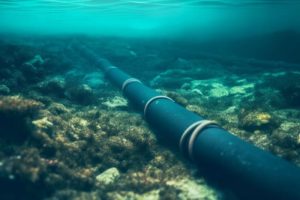It Might Take Up To Five Weeks To Repair Faulty Sub-Marine Cable Causing Internet Outage In Nigeria, Others – MainOne Reveals
The repair of the MainOne submarine cable recently compromised is projected to extend up to five weeks, MainOne disclosed in a statement on Friday, following a network disruption detected on Thursday.
Naloaded News reports that the company’s initial investigation attributes the fault to an external event, causing a severance along the West African coast, near Cote D’Ivoire, within the Atlantic Ocean.
This mishap has notably affected the Nigerian banking sector, given MainOne’s role as a crucial internet service provider for these institutions.
The resultant network downtime has left several major Nigerian banks disconnected, disrupting customers’ access to online banking services and USSD transactions.
MainOne extended its services beyond commercial and microfinance institutions, encompassing major telecom operators, ISPs, government bodies, businesses of various sizes, and educational entities. In response to the outage, MainOne has committed to “expedite the repair process and promptly restore network connectivity,” offering reassurance to its clientele during this period of inconvenience.
The company has enlisted the assistance of the Atlantic Cable Maintenance and Repair Agreement for the submarine cable’s repair.
The repair process is outlined to involve the inspection and testing of cable joints, alongside the careful repositioning of the cable on the seabed.
A crucial aspect of the repair involves a vessel, tasked with fetching necessary components from Europe to West Africa, a journey estimated to require roughly five weeks to conclude.
Submarine cable damages are commonly linked to human activities, such as fishing and anchoring, as well as natural phenomena like earthquakes and landslides.
However, MainOne has dismissed the likelihood of human interference, considering the fault’s location at a depth of about 3 km and its distance from shore.
The company stated, “Our preliminary analysis would suggest some form of seismic activity on the seabed resulted in a break to the cable, but we will obtain more data when the cable is retrieved during the repair exercise.”



